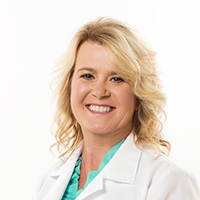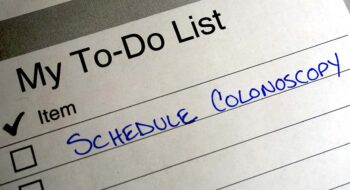Although preparing for a colonoscopy may never exactly be fun, the process has improved immensely in recent years.
In the past, colonoscopy prep required drinking a large amount of liquid containing an ill-tasting laxative that caused discomfort and hours on the toilet.
These days, patients typically still drink a liquid and spend time on the toilet, but it’s much easier because of better-tasting, lower-volume solutions and because fasting beforehand makes toilet time less bothersome. Prep typically involves consuming Gatorade or water and colon cleanser, consistent with your provider’s instructions.
“In the past, we used a gallon bowel prep that tasted badly, and many patients had a hard time getting the whole amount down,” says Rebecca Hash, a nurse practitioner at Tidelands Health Gastroenterology at Murrells Inlet. “Today, we use a much easier prep. We still want to have the bowels cleaned, so there will still be time sitting on the toilet, but the prep is much more tolerable.”
When to be screened and why
Screening colonoscopies are incredibly important because colon cancer is the second-leading cause of cancer deaths in the U.S. among both men and women. Often, patients who develop colon cancer have no apparent risk factors.
During a colonoscopy, a flexible, thin fiber-optic tube with a tiny camera is inserted into the anus to allow the doctor to examine the lining of the colon. The doctor looks for abnormalities such as polyps or inflammation that could turn into cancer, then removes any lesions for review by a pathologist. Colonoscopies save lives through early detection.
Screening colonoscopies should begin for most men and women at age 45, followed by subsequent screenings every 10 years thereafter. Some people at greater risk for colon cancer, including people with close relatives who have had colon cancer, may need to undergo screenings earlier and more often. If you have questions about when you should begin routine colonoscopies, speak with your care provider.
Preparing for the procedure
A clean colon provides the doctor the best view of your colon. A day or two before the procedure, it’s important to avoid certain foods such as nuts and seeds and transition to a liquid diet that can include:
- Gatorade, popsicles and Jell-O (avoiding red, purple or orange varieties)
- Clear broth
- Apple or white grape juice
- Ginger or lemon-lime soda
- Black coffee or tea
- No alcoholic beverages
To make colonoscopy prep easier, do the following:
- Follow your provider’s instructions closely.
- Chill the prep liquid and drink it through a straw to minimize its taste.
- Consume clear liquids between drinking the prep liquid.
- Avoid eating.
Completing the prep properly makes it easier for the doctor to spot abnormalities. If the colon isn’t clean, you may need to reschedule the procedure and go through the prep all over again.
“It’s important to follow the prep instructions,” Hash says. “Once you’ve completed the prep, you’ve done the hardest part. The procedure itself is over and done with in less than 20 minutes.”
Hash says it’s critically important not to delay or skip your colonoscopy because of the prep that’s involved.
“If you are due for a colonoscopy, please don’t put it off,” Hash says. “It’s a very important procedure because it can save your life.”
Schedule a colonoscopy today
At Tidelands Health, our region’s largest health care provider, there’s no need for a referral to schedule a screening colonoscopy. Simply call 843-701-5532.

Rebecca Hash
Nurse Practitioner, Tidelands Health Gastroenterology
Bio
Rebecca Hash is a nurse practitioner at Tidelands Health Gastroenterology at Murrells Inlet. She is accepting new patients.
Learn MoreMedical Education
Education
- Brenau University, Family Nurse Practitioner
Meet the Expert
Rebecca Hash
Rebecca Hash is a nurse practitioner at Tidelands Health Gastroenterology at Murrells Inlet. She is accepting new patients.





